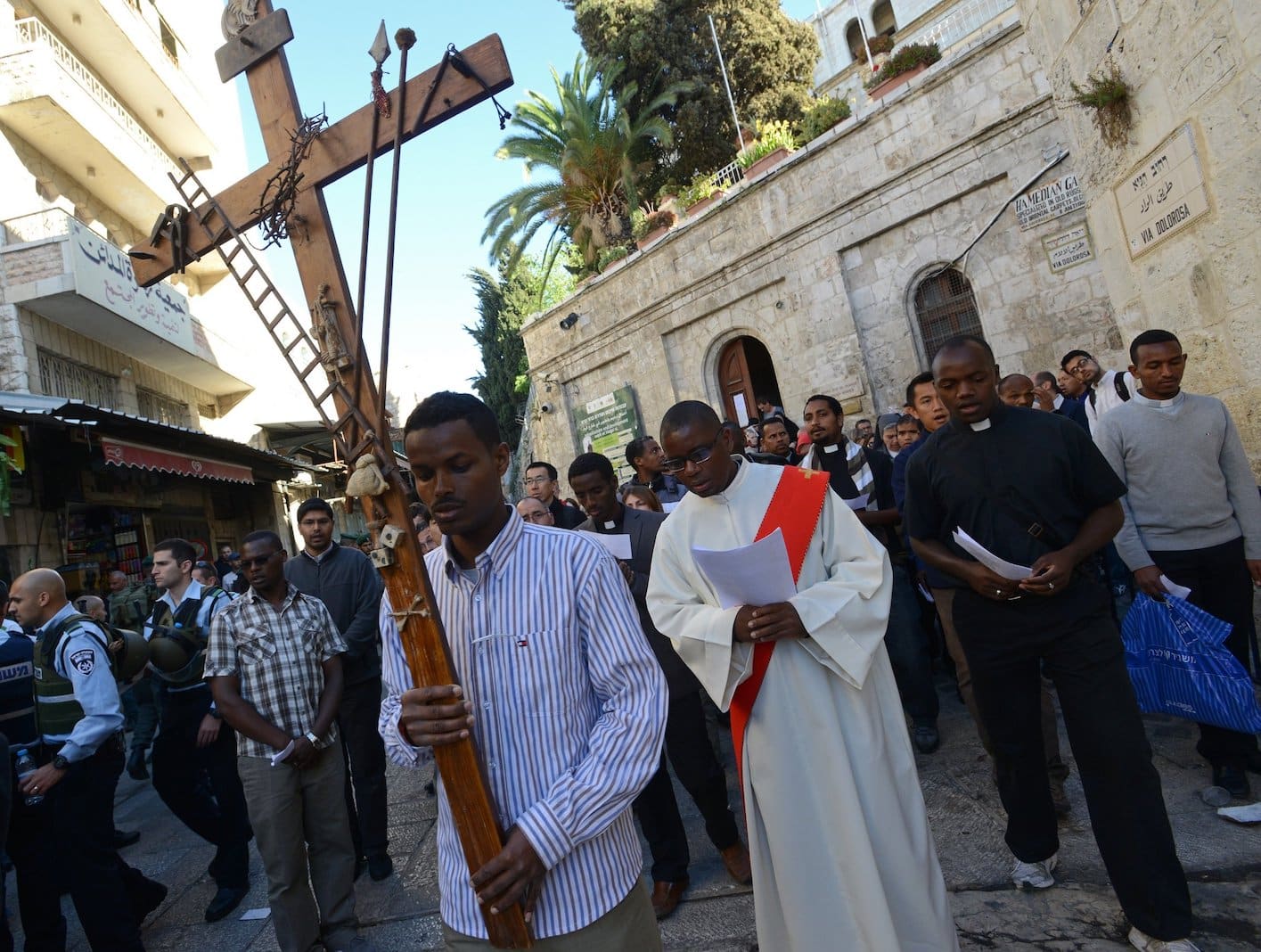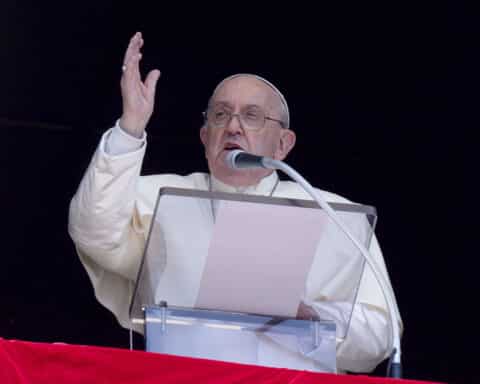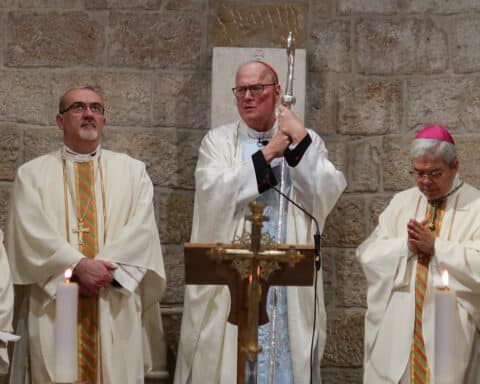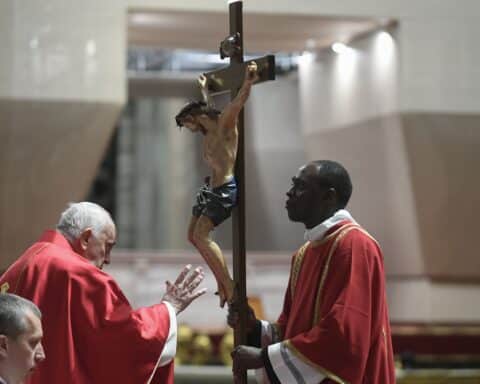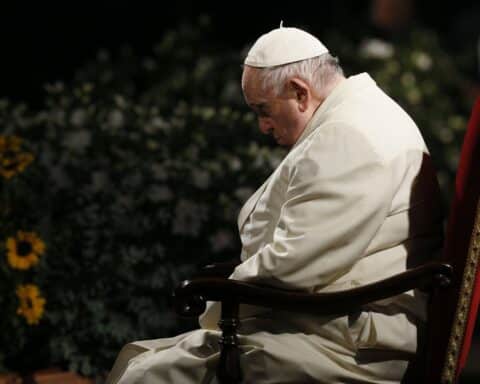VATICAN CITY (CNS) — Pope Francis plans to launch a humanitarian project in Gaza or the West Bank with the possible help of the traditional Good Friday collection for the Holy Land, said the Dicastery for the Eastern Churches.
“The outbreak of the war in Gaza, after the events of October 7, paralyzed the Holy Land. The lack of pilgrims and tourists has put thousands of families in difficulty,” the dicastery said in its annual appeal to bishops around the world asking them to urge their people to generously support this year’s collection.
“The Holy Father intends to carry out a project with humanitarian purposes in Gaza or the West Bank, which can help the population resume a more dignified life and create job opportunities once the war is over,” said the appeal published March 8. “This project could be realized with the offerings of the faithful from all over the world who participate in the collection for the Holy Land.”
The “Pro Terra Sancta” collection is the main source of material support for Christians and the Faith in the Holy Land, it said, and it is a way “for the universal Church to express solidarity with the ecclesial communities of the Middle East.”
The collection “is not merely a pious tradition for a few,” wrote Cardinal Claudio Gugerotti, prefect of the dicastery, and Maronite Father Michel Jalakh, secretary, who was named an archbishop by Pope Francis March 8.
“Everywhere in the Catholic Church, the faithful have an obligation to offer their contribution,” they wrote, “because, apart from the custody of the holy places that saw Jesus, there are still Christians living and operating in the Holy Land, amid many tragedies and difficulties often caused by the selfishness of the powerful of the world.”
However, they wrote, “many of them cannot take it anymore,” and they are leaving everything behind to flee “because they see no hope. And ravenous wolves divide their spoils.”
“I address you so that their cry does not go unheard and that the Holy Father can support the local churches in finding new ways, opportunities for housing, work and educational and professional training, so that they may remain and not get lost in the West,” they wrote.
Serving the holy places
The Franciscan Custody of the Holy Land, an administratively autonomous province of the Franciscan order, customarily receives 65% of the funds collected to preserve sacred places connected with the life of Jesus and to support Christians through its many pastoral, educational, welfare, health and social facilities throughout the Middle East, the dicastery said in a statement March 8.
The remaining 35% of the collection goes to the Dicastery for the Eastern Churches to fund seminaries, advanced education for priests and nuns, Catholic schools, including Bethlehem University, cultural formation and for subsidies to support the churches under its jurisdiction in the Middle East. The territories that benefit from the collection are Jerusalem, Palestine, Israel, Jordan, Cyprus, Syria, Lebanon, Egypt, Ethiopia, Eritrea, Turkey, Iran and Iraq.
Recent subsidies drawn from the collection have been used to support those affected by the devastating earthquakes that struck Turkey and Syria in early 2023, the dicastery said.
With the war in Gaza, “the dicastery is following the development of the situation, demonstrating its closeness through the apostolic delegation in Jerusalem, the Latin Patriarchate and the Custody of the Holy Land,” it said, adding that it hopes to use funds from this year’s collection to help Pope Francis carry out a humanitarian project in Gaza or the West Bank.
No pilgrimages means financial hardship
Together with the cardinal’s appeal, the Vatican published a report from the dicastery and a summary report by the Franciscan Custody detailing how they distributed the more than 6.5 million euro ($7.1 million) collected in 2023.
The Franciscan Custody’s report was divided into categories of funds used for pilgrim facilities, for benefiting the local community, for assisting refugees, for providing emergency and development aid, and for helping pay the salaries of employees.
The worsened war between Palestine and Israel, it said, “has brought a sudden cancellation of all pilgrimages” and the closure of all check-points has made it impossible for workers from the West Bank to enter Jerusalem.
The custody “has continued to provide equally for the payment of wages” for workers from the West Bank who are no longer able to get into Jerusalem, it said, and it is giving priority to employing workers where it can in the West Bank “in order to offer work opportunities for Christians hailing from a territory that does not benefit from a welfare system or from social security.”

